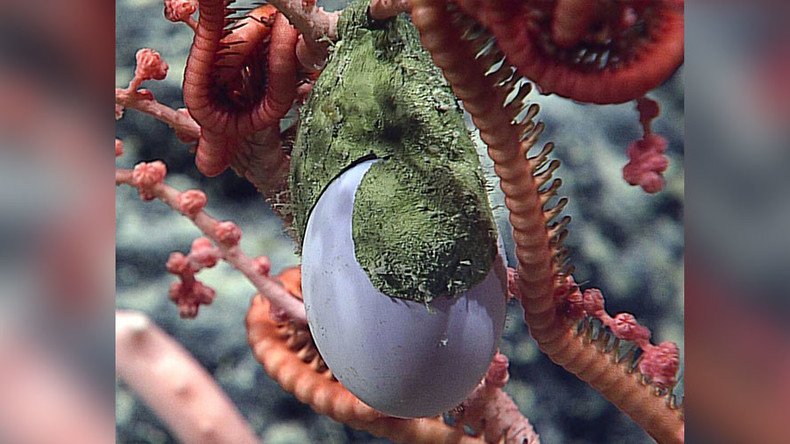Baffling purple egg-growing plant discovered on deep-sea dive... What is it? (POLL)

The NOAA’S Okeanos Explorer uncovered a mysterious purple egg-like object some 1840 meters below sea level and the internet is perplexed.
The National Oceanic and Atmospheric Administration (NOAA) is in the midst of a three-week exploration of the unknown waters at Baker Island in the Pacific Remote Islands Marine National Monument and the Phoenix Islands Protected Area.
#Okeanos diving ~1840 m at Baker Island. This seen yday on the dive. Do you know what it is? Stay Tuned! LIVE NOW: https://t.co/KMPtmePpwQpic.twitter.com/M461QqDX1A
— NOAA Ocean Explorer (@oceanexplorer) March 19, 2017
The goal of the deep-sea mission is to collect “baseline information” about what mysterious creatures lie within the uncharted territory.
During Saturday’s dive, the Okeanos Explorer team discovered a baffling purple egg-like object and posed the question to the internet: what do you think it is?
READ MORE: Stunning footage of ‘cosmic jellyfish’ captured in NOAA’s expedition (VIDEO)
The team teased eager amatuer marine biologists on Twitter, Facebook and Instagram with the question, to which they received a multitude of guesses, including a Cephalopod egg, an Easter egg, Octopus egg, “some sort of sea tulip”, a shark egg, “the attack of the Pod People”, a nudibranch egg, “an odd mermaids purse”, but they have yet to put people out of their misery.
Take our poll and tell us: What do you think it could be?
UPDATE: NOAA have finally confirmed that this innocuous object is, in fact, an octopod egg. "The purple is the chorion, which may expand as the octopus embryo develops," according to the Office of Ocean Exploration and Research.











